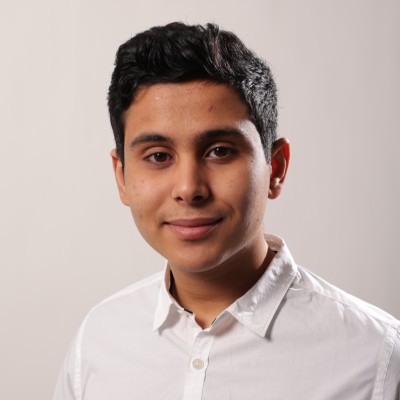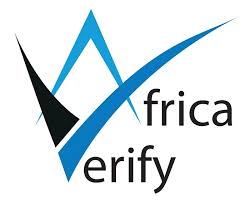
In this article, Majd MAHRSI (ESSEC Business School, Global Bachelor in Business Administration (GBBA), 2021-2025) shares his professional experience as a data analyst at Africa Verify in Casablanca, Morocco, highlighting the insights, skills, and financial knowledge gained during this intensive one-month internship.
About Africa Verify
Africa Verify is an innovative company based in Casablanca, Morocco, specializing in compliance and data analytics solutions. The company provides cutting-edge tools and services to detect financial crimes such as money laundering and to ensure compliance with international financial regulations. Africa Verify’s mission is to empower businesses and institutions with the technological capabilities needed to maintain transparency and ethical practices, fostering trust in financial systems.
The company operates at the intersection of technology, finance, and law, delivering solutions that leverage artificial intelligence (AI) and machine learning to enhance compliance processes. By collaborating with financial institutions, government entities, and multinational corporations, Africa Verify contributes to strengthening regulatory frameworks across African markets. Their expertise in data-driven decision-making and their commitment to innovation have established them as a leader in compliance technology.
With a focus on creating scalable and user-friendly solutions, Africa Verify is shaping the future of compliance management. Their flagship projects include AI-based tools for risk assessment, automated fraud detection systems, and platforms designed to streamline Know Your Customer (KYC) processes.
Logo of the company.

Source: the company.
My Internship at Africa Verify
During my one-month internship at Africa Verify, I worked as a data analyst in their compliance department, contributing to an ambitious project designed to revolutionize financial compliance using artificial intelligence. This project aimed to build a tool capable of providing real-time legal and financial risk assessments by analyzing vast datasets with high accuracy and efficiency.
My responsibilities were divided into two main areas. For most of the internship, I focused on analyzing and categorizing historical data related to financial crimes. This work involved identifying patterns and anomalies, which were then used to train the AI system. In the final week, I observed and provided input for the project’s development team as they integrated these insights into the AI tool, ensuring it met compliance standards and addressed real-world challenges faced by financial institutions.
My Missions
My primary mission was to support the development of an AI-driven compliance tool capable of detecting money laundering and other financial crimes. This required extensive research into existing money laundering typologies and compiling case studies to create a database that could serve as a training set for the AI model.
Another key task involved analyzing the effectiveness of current compliance measures. By identifying gaps and inefficiencies, I contributed to refining the AI system’s algorithms, ensuring its outputs were not only accurate but also actionable for clients. The work required a meticulous approach to data organization, as well as collaboration with the development team to translate analytical insights into technical specifications.
Additionally, I participated in the strategic planning sessions for the AI tool’s rollout, offering a data analyst’s perspective on how the product could be optimized for different market segments. This provided a unique opportunity to bridge the gap between technical development and business strategy.
Required Skills and Knowledge
This internship demanded a combination of technical expertise and interpersonal skills. Strong analytical abilities were crucial for understanding complex datasets and extracting meaningful insights. Proficiency in tools such as Excel and Python, as well as familiarity with statistical methods, were indispensable for the data analysis tasks.
Equally important were soft skills, including adaptability and cultural sensitivity. Working in a foreign country required me to quickly integrate into a new team and build rapport with colleagues from diverse backgrounds. Effective communication and teamwork were essential, especially when collaborating with legal experts, developers, and other stakeholders to align on project goals.
The ability to manage time effectively and prioritize tasks under tight deadlines was another critical skill. My previous experiences in data analysis and project management helped me navigate these challenges, allowing me to contribute meaningfully to the project.
What I Learned during my internship at Africa Verify
This internship was a profound learning experience that expanded my knowledge of compliance and financial risk management. I gained a deeper understanding of the role that data plays in shaping regulatory practices and how technology can be leveraged to enhance these processes. Specifically, I learned how AI and machine learning models are trained, tested, and deployed to address real-world compliance challenges.
The experience also underscored the importance of cross-functional collaboration. Working alongside experts in law, technology, and finance taught me to appreciate the interdisciplinary nature of compliance projects. I learned how to navigate the complexities of aligning diverse perspectives to achieve a common objective.
On a personal level, the internship enhanced my adaptability and resilience. Overcoming cultural and logistical challenges in a new environment reinforced my ability to thrive in dynamic, high-pressure settings.
Financial Concepts Related to My Internship
I detail below three concepts that were useful during my internship: Money Laundering, Financial Action Task Force (FATF), Know Your Customer (KYC) and Compliance.
Money Laundering
Money laundering is a complex process by which criminals disguise the origins of illegally obtained funds to make them appear legitimate. This involves three stages: placement (introducing illicit funds into the financial system), layering (moving funds through a series of transactions to obscure their origin), and integration (reintroducing funds into the legitimate economy). Understanding these stages was crucial during my internship, as I analyzed case studies to identify patterns and behaviors that the AI system could detect.
The work emphasized the need for robust detection mechanisms to combat money laundering, as traditional methods are often slow and resource-intensive. By incorporating these insights, the AI system aims to automate detection processes, significantly enhancing the efficiency and accuracy of compliance operations.
Financial Action Task Force (FATF)
The Financial Action Task Force (FATF) is an intergovernmental organization that sets global standards to combat money laundering, terrorist financing, and other financial crimes. FATF’s recommendations serve as a benchmark for national and institutional compliance programs, emphasizing risk-based approaches and robust monitoring systems.
My internship required an in-depth understanding of these recommendations to ensure that the AI-driven compliance tool adhered to international standards. This involved studying FATF guidelines to identify key compliance metrics that the tool needed to address. The experience underscored the importance of aligning technology with regulatory frameworks to enhance its credibility and usability in global markets.
Know Your Customer (KYC) and Compliance
Know Your Customer (KYC) refers to the process of verifying the identity of clients to prevent financial crimes such as money laundering, fraud, and terrorist financing. Effective KYC measures include identity verification, due diligence, and ongoing monitoring of client activities. These processes are essential for maintaining the integrity of financial systems and ensuring compliance with regulatory requirements.
During my internship, I contributed to the development of an AI tool designed to streamline KYC processes. The tool uses automated data collection and analysis to enhance the efficiency of identity verification and risk assessment. This not only reduces the time and cost associated with traditional KYC measures but also minimizes errors and improves compliance outcomes. The project highlighted the transformative potential of technology in simplifying complex regulatory procedures.
Why Should You Be Interested in This Post?
This post is particularly relevant for ESSEC students interested in pursuing careers in compliance, risk management, or data analytics. Africa Verify offers a unique opportunity to work on cutting-edge projects that combine finance, technology, and law. Additionally, earning certifications such as the ACAMS (Certified Anti-Money Laundering Specialist) can set you apart in the competitive job market by demonstrating expertise in anti-financial crime measures.
The internship provides hands-on experience in solving complex compliance challenges, fostering a deep understanding of how data and technology are reshaping the financial industry. It is an excellent opportunity to build a professional network and develop skills that are highly valued in today’s global job market.
Related Posts on the SimTrade Blog
▶ All posts about Professional experiences
▶ Alexandre VERLET Classic brain teasers from real-life interviews
▶ Esten CHAUVIN Compliance et régulation dans le secteur financier : focus sur les prêts de titres et les dérivés OTC
Useful Resources
Financial Action Task Force (FATF)
Financial Action Task Force (FATF) FATF Recommendations
About the Author
The article was written in December 2024 by Majd MAHRSI (ESSEC Business School, Global Bachelor in Business Administration (GBBA), 2021-2025).
